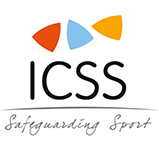Gold Coast well placed to deliver ‘safe and secure’ games
BY ANDREW COOKE, DIRECTOR OF SECURITY OPERATIONS AT THE INTERNATIONAL CENTRE FOR SPORT SECURITY (ICSS)
It goes without saying, that security is an essential part of the planning and staging of any successful major sporting event. No Country, host city or venue is exempt from the local and global threats sport now faces. As we all know, the threat is real.
As part of their preparations to deliver the Commonwealth Games, the Gold Coast 2018 Commonwealth Games Corporation (GOLDOC), the government and security forces have made clear from the outset that security was of the utmost priority. They have taken an all ‘risks’, all ‘threats’ approach, which allows for ‘theatre wide’ risk management, so that no threats or risks are overlooked and all vulnerabilities have been assessed and mitigation strategies put in place. This includes risks such as terrorism, the political environment, crime, health, cyber, and natural disasters, as well as protest and demonstration.
During an event of this size and scale, the security and threat environment changes on a daily basis. It is a complex and dynamic situation and can only be managed with an effective integrated framework and structure across the ‘theatre of operations’. For me, as an independent observer, one of the pleasing aspects of the planning for these Games has been the close collaboration of all involved in the security ‘footprint’ from government, to police, support agencies and the GOLDOC security team.
This extends to alignment over the use of security mechanisms and available resources. Interestingly, for these Games, new and emerging artificial intelligence and predictive technology has been assessed and used to automate, accelerate and enhance the ability of police and government agencies to predict real and potential security threats, along with the use of smart data and analytics to identify and forecast emerging trends and risks. This emerging technology will be supported by other security components such as intelligence, drones, access control, x-ray screening, biometrics, facial recognition, RFD devices, CCTV, security guarding, crowd management and specialist responders.
An area where event planning has often fallen short is ensuring security staff are properly trained and are equipped to do their job effectively. With over 4,000 security staff needed to deliver an event of this size, what you quite often find is that security staff are hired on temporary, part-time and low paid contracts and lack experience dealing with often complex and highly pressurised situations. The GOLDOC security team and all stakeholders have worked for many years to put in place structures, policy, procedures, standards and guidelines that will enable them to mitigate the risk in managing private security forces. We eagerly await to see how this will evolve into the operational Games-time requirements and to ascertain if all the hard work of the security team comes to fruition. If all goes well it could well set a platform for managing private security for future major events.
In the final build up to the Games, we saw the security forces testing their security responses around public transport, public unrest, demonstrations and crime. Most recently, emergency services took part in a two-day ‘worst-case scenario’ drill that included tactical police units working from armoured cars, bomb robots, drones, paramedics on bicycles and fire-fighters, coordinated with GOLDOC, the Gold Coast City Council and the Department of Transport. Exercises such as these form a crucial part of preparations and ensure that the proper processes are in place to enable a quick and effective response to any issue that may arise.
Ultimately, you can never underestimate the risks, demands and challenges that are involved in managing the safety and security of an event such as the Commonwealth Games and it is clear that there is ‘no one size fits all’ solution. The key is to prioritise all facets of safety and security at all levels; it has to be the number one priority for the host country. What’s more, it must be approached as an integrated, comprehensive, multi-layered, multi-faceted enterprise; it absolutely cannot be an afterthought.
By learning from previous events and tournaments and understanding past mistakes; ensuring that safety and security planning is integrated into your strategy at the earliest possible opportunity; establishing a seamless collaboration between government, security forces and the organising committee; and, perhaps most importantly, to test, test and test again, you can develop strong foundations for delivering a safe and secure Games, something, I believe, GOLDOC is well placed to do.
Andrew Cooke
Andrew is an internationally experienced and recognised Major Event Sport Safety and Security Specialist with a career spanning over 27 years with multi-disciplinary sport security, risk management and law enforcement experience.
As Director of Security Operations, Andrew leads the ICSS Safety & Security Operations advisory team in their work with major sport events, governments and international federations in their security planning (strategic, tactical and operational), testing & assurance, auditing, training and delivery.

